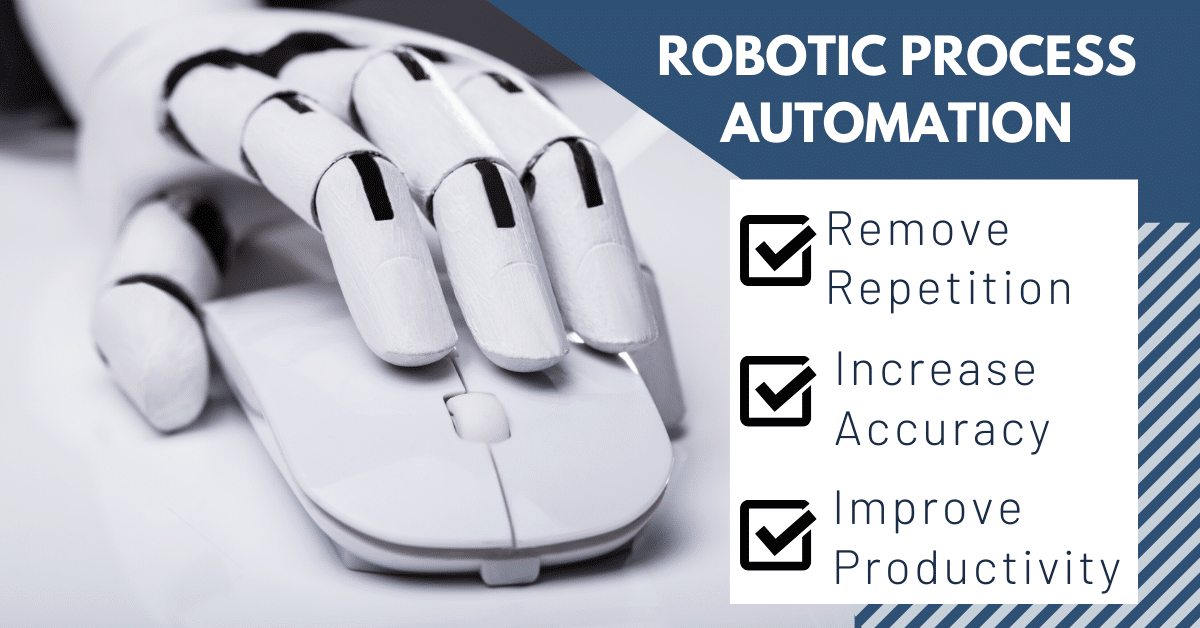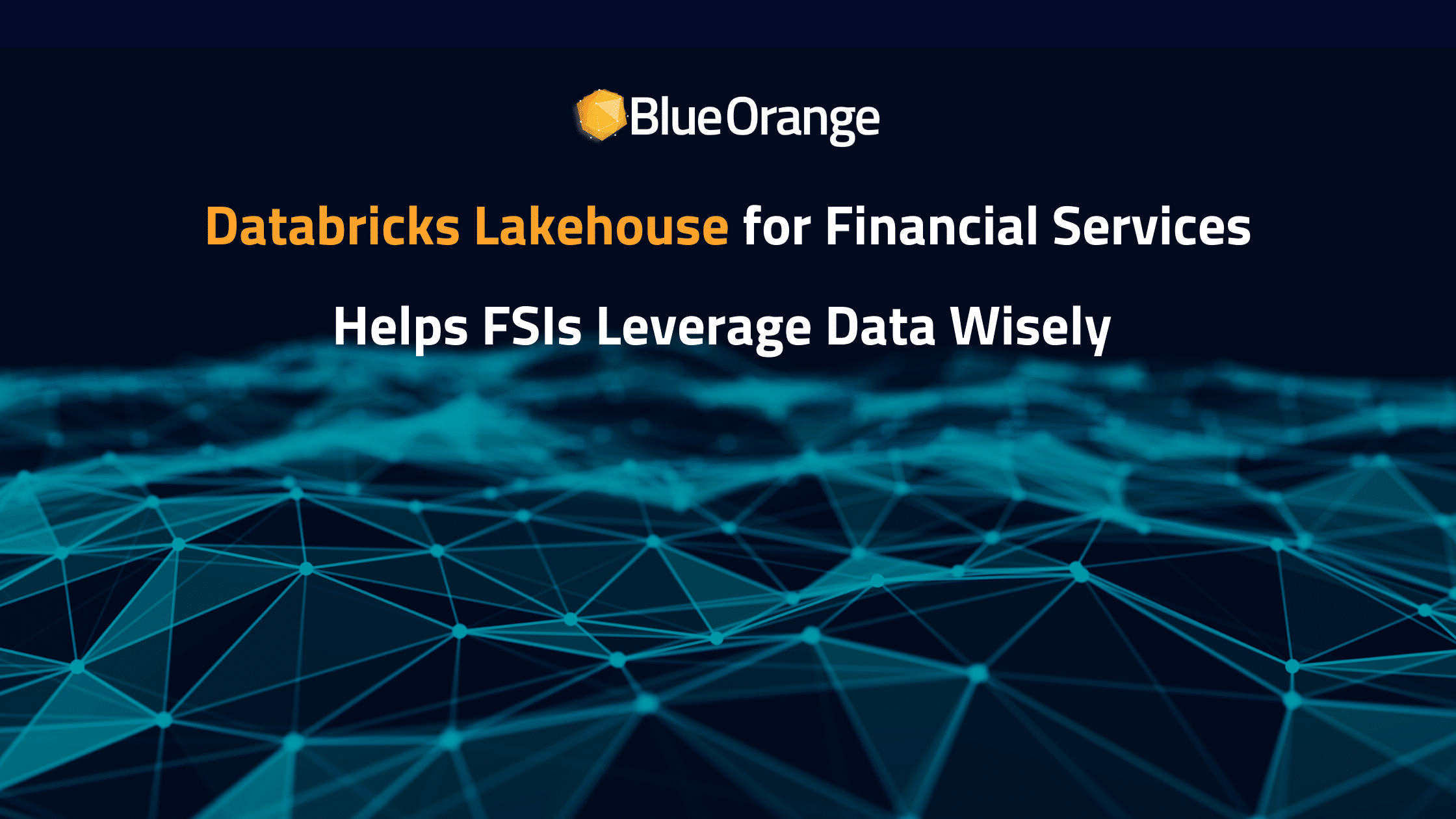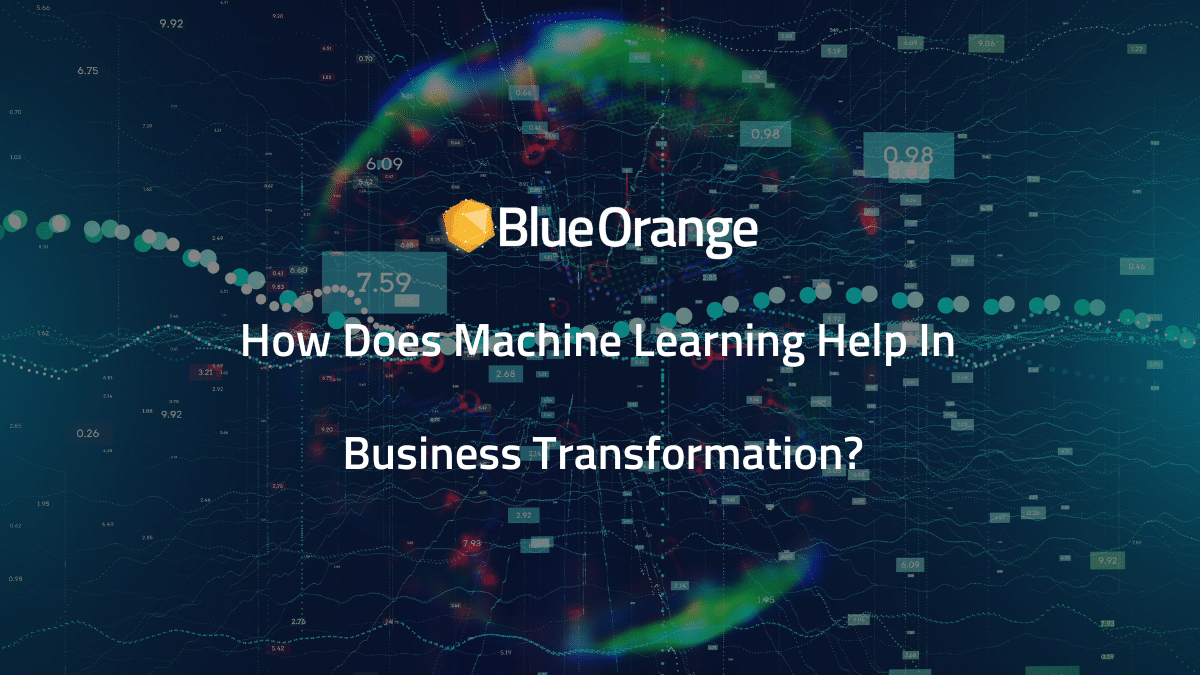Robotic Process Automation, sometimes called Intelligent Process Automation, is the deployment of software tools with the goal of automating recurring business processes. While traditional automation means programming and integrating tools to achieve specific tasks (i.e. make a machine to do task X), RPA works at the User Interface level by mimicking human user actions. Software tools (also referred to as “robots”) are deployed on top of existing IT infrastructure and solve tasks in the same way that a human would.
Wait, so there are no actual robots involved at all?
That’s right! If anything, RPA takes the robot out of the human. Copying data, logging into applications, extracting information from documents, moving files and folders, filling in forms. Such repetitive tasks qualify for Robotic Process Automation since they are usually part of standardized business processes. As a result, human workers are freed from time-consuming, high-volume activities and can focus on strategic business tasks.
The integration of RPA is straightforward with existing IT systems and has a significant impact on operational costs while offering the possibility to scale according to business needs. It is therefore no wonder that it’s been gaining increased attention from organizations seeking to automate back- and middle-office digital processes.
But let us take a closer look at some global surveys covering RPA adoption in 2019. The Gartner 2019 RPA Adoption Snapshot (focusing on the finance sector) has found that 80% of respondents are already implementing or planning to start employing RPA as part of their business operations. Another global survey covering 450 companies has classified 32% of respondents as leaders (i.e. having extensive experience with mature RPA applications) and 41% as intermediates (i.e. in the course of testing and planning RPA adoption). Also, they report that while RPA maturity stage varies by industry, all respondents plan to expand RPA usage within the next two years. Moreover, the Deloitte Global RPA Survey carried across 26 countries asked 523 executives about their RPA adoption strategy. 58% of the respondents reported they have already started their automation efforts. Additionally, 78% of those already implementing RPA solutions expect to increase RPA investments over the next three years.
It seems like organizations already implementing RPA solutions have it figured out: finding the right distribution of tasks between humans and machines enables organizations to become more efficient, cut down on costs and improve the quality of their services.
Let us take a closer look at the multifaceted value of RPA business process transformation:
Improved Accuracy of Data Processing
Reducing human intervention and relying on rule-based software bots instead is a way to completely remove any chance of errors. Since RPA also involves tracking and activity logging, it is also easier to identify, repair and avoid common processing failures.
Scalability and Ease of Integration
When additional processing resources are required, it is not necessary to train and employ new workers. Instead, it is enough to deploy a new bot, on an environment of choice (locally, or in the cloud), without performing any changes to the underlying IT infrastructure.
Improved Employee Morale and Customer Satisfaction
Assigning the repetitive tasks to robots means freeing up time and resources for employees to tackle high-value, rewarding tasks. Also, increased data processing capabilities can reduce the processing time of customer interactions, resulting in superior customer experience.
Increased Productivity Gains
Since software bots can work and process data 24/7, they can ensure permanent operations. Also, they can achieve greater speeds than their human counterpart when dealing with both structured and unstructured data inputs.
Reduced Operational Costs
Manual, repetitive, time-consuming tasks can be carried out by RPA at a fraction of the regular cost. As such, automation becomes a strategic tool for cost optimizations. Current adoption reports show how successful RPA implementations ensure a positive ROI within the first year of adoption.
Enhanced Compliance
RPA tasks can be recorded at each step of the process. Logs and system information are therefore easily available for audit regulation and other bureaucratic purposes. Additionally, RPA makes it straightforward to keep up with and operate in accordance with industry-specific regulations and standards.
The benefits of RPA are not by any means limited to a specific industry sector. On the contrary, we can wholeheartedly admit that RPA is already transforming businesses in every sector. From banking and health care, to customer service, insurance, retail, and manufacturing. There are countless success stories that show how RPA is the quickest way to improve performance and reduce costs.
There are also no restrictions when it comes to the scale of RPA deployment. Indeed, different synchronization and configuration efforts may be required when dealing with thousands of complex processes specific to a global corporation, as opposed to the (relatively limited) needs of a startup. But there are repetitive, rule-based processes in every business, regardless of its size. And these processes are consuming resources (time & money), killing the human workforce creativity and limiting the potential of business services. Unless, of course, a carefully planned RPA strategy is defined.
RPA is the modern driver for business performance and efficiency. Automation investment brings benefits far beyond time and cost savings but also fosters innovation. Businesses across industries have discovered the added value of automation and some are already taking it to the next level. Blue Orange Digital, ranked among the Best Custom Software Developers of 2020, is qualified in new solutions that combine RPA with AI tools and advanced analytics (i.e. Intelligent Automation) and are well on their way to further reshaping tomorrow’s business operations. Take your business to the next level, whether that means recession-proof, market foresight, optimization, or automation to you, we can do it. Can you afford not to call? Free discovery call today.










